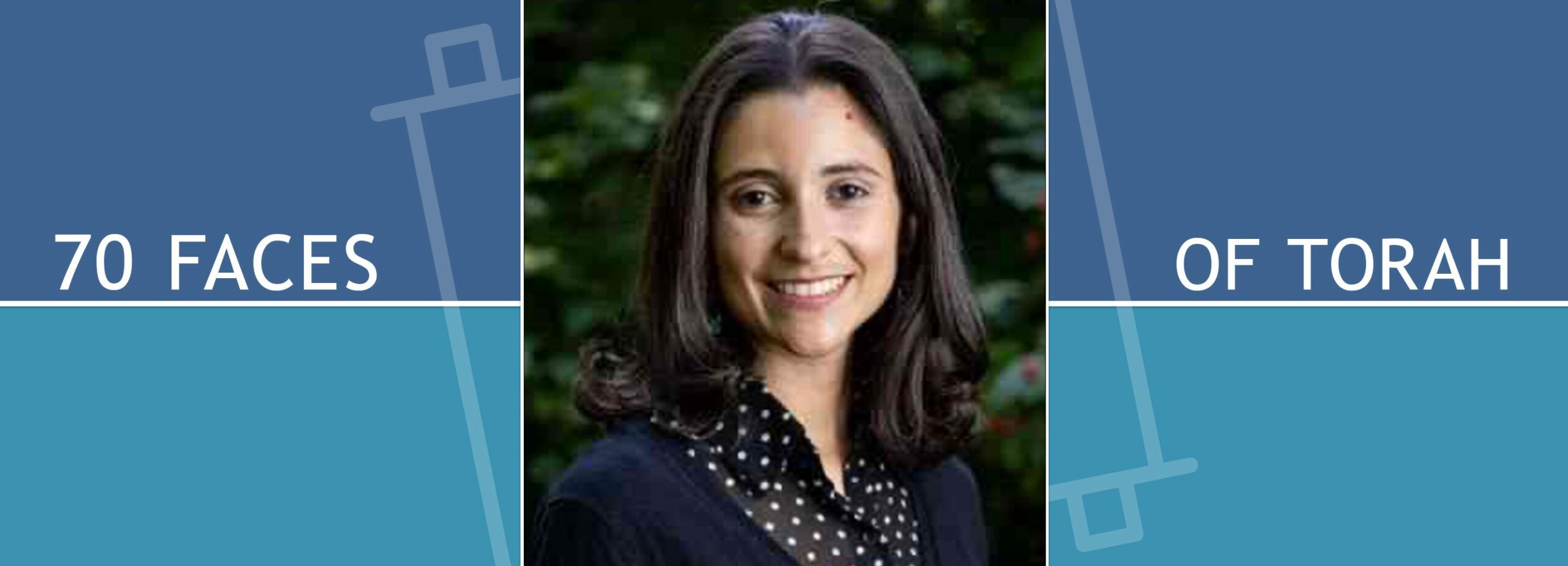Alumni What to Make for Dinner on the Day the World Changes

Parashat Naso (Numbers 4:21-7:89)
I have always been fascinated by the Nazirite vow, described in this week’s parsha. It is so deeply personal. You choose to become a Nazir, you choose the terms of how long it will last, and then you perform a ritual to release yourself from the binds of the vow. The vow offers you a concrete structure to restrict yourself in relation to the physical world—no wine, no haircuts—in order to be more deeply in relationship to the divine. The Talmud, in Masechet Nazir, plays with the way this personal vow intersects with the world around by imagining scenarios where people make conditional Nazirite vows: “If x is true, then I am a Nazir.” On Nazir 32b, the Talmud shares a story that highlights the stark contrast between the personal Nazirite vow, and the ever-changing world in the background.
The story starts with a group of people traveling to the Temple to offer the sacrifices required to complete their time as Nazirites. Upon arrival they discover, much to their surprise and dismay, that the Temple has been destroyed! The Talmud is brimming with stories about the destruction of the Temple, and the pain and horror this event caused for the Jewish people. This is not one of those stories. This is a story about the struggle to plan in an ever-changing world. When these people made their vows, they assumed the Temple was still standing. They set off on foot to make the long pilgrimage, sacrifices in hand. When they discover the Temple is gone, they regret the vows. They want a take-back.
Whether or not they are able to nullify the vow depends, in part, on whether they could or should have known this was coming. Could they possibly have expected the destruction of the Temple? Rav Yosef quotes a verse from Jeremiah (7:4) that he believes should have been read to predict the destruction of the Second Temple. This verse, he claims, should have been enough for them to have anticipated this catastrophe. Okay sure, the gemara responds, they knew this was coming, but how were they to know when? Abaye brings a verse from Daniel (9:24) to prove that they should have been able to calculate the exact year of the destruction.
The passage ends with these final words וְאַכַּתִּי מִי יָדְעִינַן בְּהֵי יוֹמָא “and still, did we know on which day?” Change on the scale of the destruction of the Temple can happen in a single day. And there is no way for us to know which day that will be.
In the last decade the term VUCA has made its way from military strategy to the business world and now also into non-profit management. The acronym, standing for volatility, uncertainty, complexity and ambiguity, reminds us that the world is unpredictable, and that things are constantly changing. Today there are hundreds of seminars and books to help us live in this ever-shifting VUCA world.
I would argue that Tractate Nazir contains similar lessons. This story about the Temple teaches us that even the biggest historical shifts happen on what is otherwise a regular day. We are reminded that what makes it into our history books and our rituals as an epic story of a people, was also a moment in the life of an individual. We turn on the news to see major events that will no doubt require several chapters of future history books, and then we turn back to our daily lives and figure out what to make for dinner. The Nazirites in this story discovered the destruction of the Temple, yet they still needed to know if they could have a glass of wine and get a haircut.
We might identify with these characters, as they discern how to live their lives against a backdrop of seismic historical shifts. Like them, we have to figure out how to orient ourselves to events not only as they impact history and society, but also how they fit into the fabric of our lives, weeks and even days. There is a reason we ask “where were you when…” questions. We struggle to place ourselves in history. We are not alone in this struggle. Like our ancestors who turned to the Nazirite vow, we may yearn for ways to exercise control and build meaning in our individual lives. Without the Temple we can no longer become Nazirim, but we can still find meaningful ways to set boundaries and connect to the divine.
Rabbi Avi Killip is the Executive Vice President at Hadar. A graduate of Hebrew College Rabbinical School, Avi also holds Bachelors and Masters from Brandeis University. She was a Wexner Graduate Fellow and a Schusterman Fellow. Avi teaches as part of Hadar’s Faculty and is host of the Responsa Radio podcast. Avi lives in Riverdale, NY with her husband and three young children.

